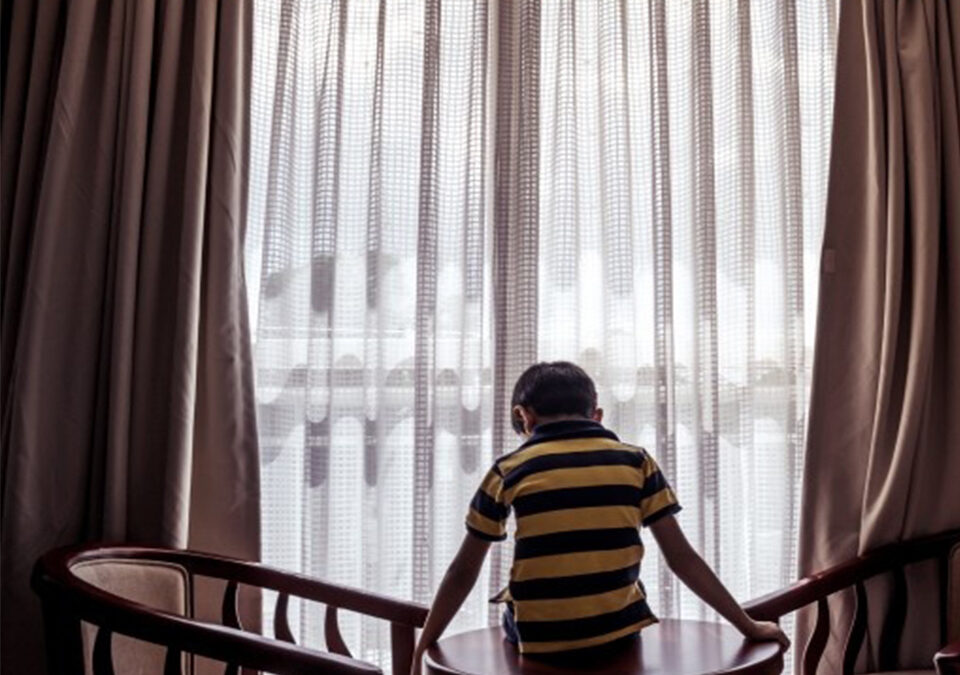
What Is ‘Inverse Vaccine’ And How Is It Beneficial For Diabetics?
December 9, 2021
Serious Skin Conditions Resulting From Diabetes
December 9, 2021Juvenile diabetes, also known as type 1 diabetes, is a condition in which the pancreas stops producing insulin or produces very little insulin in the body. This condition is mostly developed in children and can be extremely challenging for them as well as their families. Like any other chronic disease, juvenile diabetes also affects the mental health of the patients. Understanding how profound the impact of juvenile diabetes is on the children’s mental health can help the caregivers better manage their strategies.
Can Juvenile Diabetes Cause Mental Health Problems In Children?
Juvenile diabetes usually requires a complex and demanding treatment regimen. It involves taking several medications, following dietary regulations, attending doctor’s appointments, frequently administering insulin, regular monitoring of blood glucose levels and adopting lifestyle practices to prevent diabetes complications. These tasks tend to disrupt the normal functioning of the day-to-day activity of kids and even impose restrictions on attending social functions such as sleepovers, birthday parties, etc. All this can be extremely exhausting and stress-inducing for children. Therefore, most children with juvenile diabetes suffer from mental health disorders, such as depression, anxiety disorders and behavioural disorders.
What Are The Mental Health Problems Faced By Children With Juvenile Diabetes?

- Depression:
About 25% of the children with type 1 diabetes develop depression and diabetes stress over time, mostly due to the negative feelings they have about diabetes. They often experience depressive symptoms such as sadness, distractibility, sleep disturbances, loss of appetite, low motivation, anger, tantrums, stomach ache, headaches, etc. In many cases, depression may also lead to suicide.
Depression can make diabetes management ineffective and produce poorer outcomes. It also increases the risk of diabetes complications in children. Therefore, it is important to identify depressive symptoms in children and help them overcome them. You may take the help of your medical team and therapists for the same. Support groups are also effective in dealing with diabetes distress.
- Anxiety Disorder:
Many children with juvenile diabetes also suffer from anxiety disorders. It has been found that the main reason for anxiety is fear of hypoglycemia. Children live in constant fear of having a hypoglycemic condition in schools, parks, etc. This constant anxiety can affect the glycemic control of the body and make diabetes management ineffective. Therefore, it is important to reduce the fearful atmosphere surrounding juvenile diabetes and make the children feel more comfortable and less anxious. Education and awareness programs for the same can be proven highly effective.
- Eating Disorders:
Many children, especially adolescents, suffer from eating disorders as a result of having juvenile diabetes. The dietary regulations and the constant need to maintain the body weight can develop eating disordered behaviour, such as dieting for weight control, binge eating, etc. One of the most common eating disorders developed due to juvenile diabetes is anorexia nervosa, where children develop rigid thinking about food. These eating disorders can impact metabolic activities negatively and increase the risk of diabetes complications. They also tend to increase the mortality rate in children with diabetes. Therefore, it is essential to recognise this disorder at an early stage and get them treated.
What Can The Parents Do?

Parents and families are most important in the diabetes management of children. They play a key role in helping their child adjust to diabetes and deal with psychological distress. Some of the tips given below can help parents strategise the diabetes management plan more effectively:
- Listen to your children’s problems. Always acknowledge them and make them feel comfortable as they share their distress around diabetes.
- Share the diabetes management tasks with your kids. You can become their exercise buddy, remind them of their medications, check their blood glucose levels, etc. It will help relieve the burden on your children’s shoulders.
- Appreciate your kids for all the small achievements or efforts. Every small step counts.
- Do not punish them for low or high numbers. Understand the reasons behind these numbers and work with them as a team.
- Do not always talk about diabetes. Distract yourself and your kids with other activities. Make them feel that diabetes is just a part of their life, not the whole life.
- Chronic illness can make your kids feel left out. Spend quality time with them and let them know that you are always with them.
- Advise your children to talk to the diabetes team about their concerns. You can also take psychological help from a therapist or take your children to a support group.
Takeaway:
Juvenile diabetes can have a profound impact on the mental health of children. It can cause many psychological disorders such as depression and anxiety. These disorders not only affect diabetes management negatively but also increase the risk of diabetes complications. Therefore, it is important to address these problems and deal with them effectively to reduce psychological stress in children.
References:
- https://www.ncbi.nlm.nih.gov/pmc/articles/PMC3721971/#R21
- https://www.idf.org/component/attachments/attachments.html?id=439&task=download
- https://spectrum.diabetesjournals.org/content/16/1/7
- https://www.kidshealth.org.nz/emotional-mental-wellbeing-children-diabetes
- https://bmcendocrdisord.biomedcentral.com/articles/10.1186/1472-6823-14-83
- https://care.diabetesjournals.org/content/38/3/453
- https://journals.plos.org/plosone/article?id=10.1371/journal.pone.0092473




